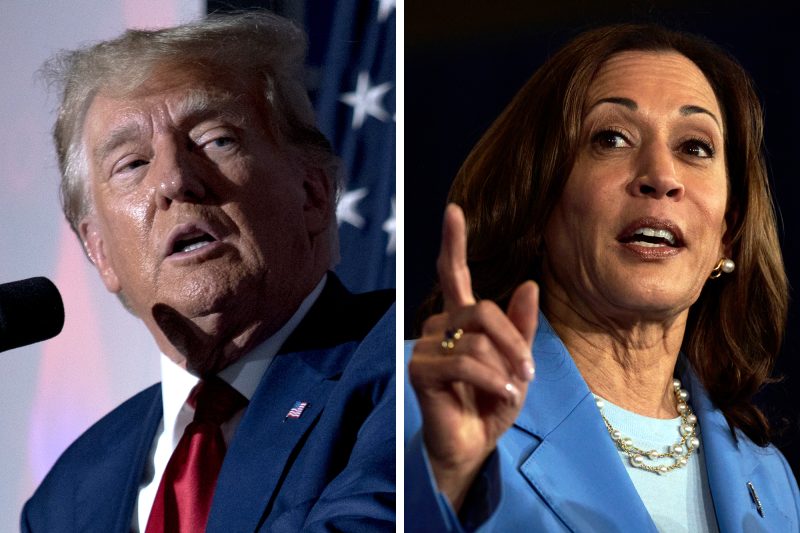In the recent months leading up to the highly anticipated U.S. presidential election, numerous claims and allegations have been made by both parties regarding Social Security and Medicare. Vice President Kamala Harris and former President Donald Trump have been at the forefront of these discussions, with each side presenting contrasting views on how to handle these critical social programs.
Vice President Harris has advocated for expanding and strengthening Social Security and Medicare to provide better assistance to the elderly and vulnerable populations. She has proposed measures to increase funding for these programs and ensure that they remain sustainable for future generations. Harris emphasizes the importance of protecting the social safety net and ensuring that every American has access to quality healthcare and financial security in their later years.
On the other hand, former President Trump has taken a different approach, suggesting various reforms that aim to reduce spending on Social Security and Medicare. During his time in office, Trump proposed changes such as reducing benefits, raising the retirement age, and possibly privatizing parts of these programs. The former president argued that these adjustments were necessary to address the growing costs of entitlement programs and ensure their long-term viability.
The debate between the two camps has sparked heated discussions among policymakers, experts, and the general public. Supporters of Harris commend her efforts to protect and strengthen Social Security and Medicare, believing that these programs are essential for providing a safety net for retirees and those in need. They argue that investing more in these programs will help reduce poverty among the elderly and improve healthcare outcomes for millions of Americans.
Conversely, Trump’s supporters argue that his proposals for reforming Social Security and Medicare are necessary to prevent these programs from becoming financially unsustainable in the future. They believe that cutting costs and introducing market-based solutions will make the programs more efficient and effective, ensuring their long-term solvency and preventing a future fiscal crisis.
As the debate continues, it is essential for policymakers to carefully consider the implications of any changes to Social Security and Medicare. These programs play a critical role in supporting older Americans and ensuring their well-being in retirement. Balancing the need for fiscal responsibility with the goal of providing adequate support for seniors will be a key challenge for the incoming administration and Congress.
Ultimately, finding common ground on Social Security and Medicare will require bipartisan cooperation and a commitment to addressing the long-term sustainability of these vital programs. Both sides must work together to find solutions that protect the most vulnerable members of our society while ensuring that future generations can rely on these essential safety nets. The outcome of these debates will have far-reaching implications for the millions of Americans who depend on Social Security and Medicare for their financial security and healthcare needs.
